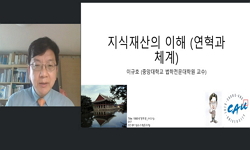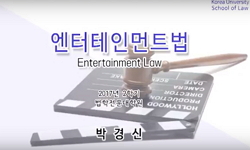In civil litigation, the plaintiff bears the burden of proof of holding the defendant liable for damages. However, in modern cases such as medical malpractice, pollution, and product liability, it is difficult for the plaintiff to bear the burden of p...
http://chineseinput.net/에서 pinyin(병음)방식으로 중국어를 변환할 수 있습니다.
변환된 중국어를 복사하여 사용하시면 됩니다.
- 中文 을 입력하시려면 zhongwen을 입력하시고 space를누르시면됩니다.
- 北京 을 입력하시려면 beijing을 입력하시고 space를 누르시면 됩니다.

영업비밀 침해소송에서 입증책임 완화를 위한 추정규정의 도입검토: 최근의 중국과 일본 사례를 중심으로 = Introducing a Presumption Rule to Reduce the Burden of Proof in Trade Secret Infringement Legislation: Legislation Examples from China and Japan
한글로보기https://www.riss.kr/link?id=A109442333
-
저자
정대순 (특허청; 한남대학교 대학원)
- 발행기관
- 학술지명
- 권호사항
-
발행연도
2024
-
작성언어
Korean
-
주제어
영업비밀 ; 영업비밀 침해소송 ; 입증책임 ; 법률요건 분류설 ; 일응의 추정 ; 법률상 추정 ; 사실추정의 원칙 ; 1단계 미·중 무역협정 ; 반부정당경쟁법 ; 부정경쟁방지법 ; 부정경쟁방지 및 영업비밀보호에 관한 법률 ; Trade Secret ; Trade Secret Infringement Litigation ; Burden of Proof ; Prima facie Beweis ; Res ipsa loquitur ; The first phase of Economic and Trade Agreement between U.S. and China ; Anti-Unfair Competition Law ; Unfair Competition Law ; Unfair Competition Prevention And Trade Secret Protection Act
-
등재정보
KCI등재
-
자료형태
학술저널
-
수록면
95-120(26쪽)
- DOI식별코드
- 제공처
-
0
상세조회 -
0
다운로드
부가정보
다국어 초록 (Multilingual Abstract)
Even in civil litigation for trade secret infringement, plaintiffs have difficulty in proving the defendant's trade secret infringement because of the ubiquity of trade secret related evidence.
According to the “Survey on Technology Protection of Trade Secrets of Enterprises” conducted in 2022, approximately 61% of the participants cited “difficulty in collecting evidence of damage caused by the leakage of trade secrets” as the greatest obstacle. This article analyzes the cases of China and Japan to examine whether it is reasonable and necessary to introduce a presumption rule in trade secret infringement lawsuits and derive appropriate legislative directions for the Korean legal system.
In civil litigation, the plaintiff bears the burden of proof of holding the defendant liable for damages. However, in modern cases such as medical malpractice, pollution, and product liability, it is difficult for the plaintiff to bear the burden of proof throughout the entire process of causation because of the ubiquity of evidence and the high level of expertise required for proof. To overcome this situation, a growing trend seeks to ease the plaintiff's burden of proof by creating a presumption of primary facts when the plaintiff proves indirect facts.
Even in civil litigation for trade secret infringement, plaintiffs have difficulty in proving the defendant's trade secret infringement because of the ubiquity of trade secret related evidence.
According to the “Survey on Technology Protection of Trade Secrets of Enterprises” conducted in 2022, approximately 61% of the participants cited “difficulty in collecting evidence of damage caused by the leakage of trade secrets” as the greatest obstacle. This article analyzes the cases of China and Japan to examine whether it is reasonable and necessary to introduce a presumption rule in trade secret infringement lawsuits and derive appropriate legislative directions for the Korean legal system.
동일학술지(권/호) 다른 논문
-
상표 사용에 의한 식별력 취득 인정의 판단기준에 대한 소고: 식별력 취득 요건 완화 10년 후의 판결·심결을 중심으로
- 한국지식재산연구원
- 엄태민
- 2024
- KCI등재
-
BERTopic 기반의 계층적 클러스터링을 활용한 자율주행차량 기술 동향 연구: 특허데이터 분석을 중심으로
- 한국지식재산연구원
- 김소영
- 2024
- KCI등재
-
- 한국지식재산연구원
- 배성희
- 2024
- KCI등재
-
- 한국지식재산연구원
- 김혁준
- 2024
- KCI등재




 DBpia
DBpia





